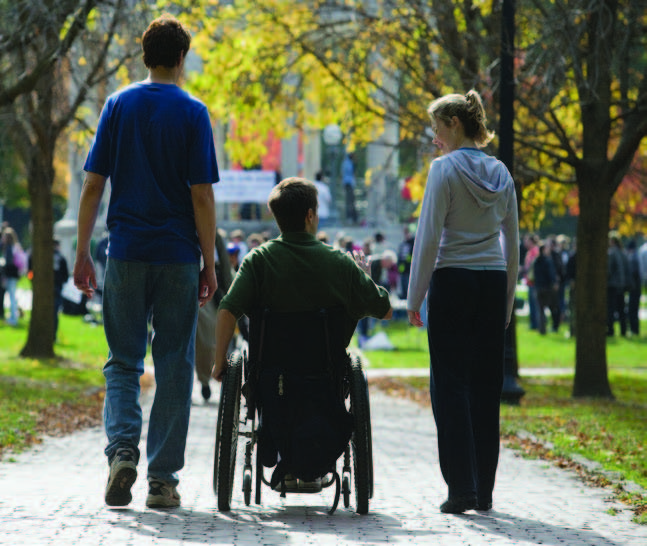
Fall 2017
Download a PDF of the Fall 2017 Edition of the Support Report
Exploring Quality of Life
What is quality of life?
Quality of life is "the degree to which individuals experience personal well-being in terms of participation in valued activities and settings, physical health, and overall satisfaction with their surroundings and relationships."
What does this mean? It means we need to look at each person, the whole person, as an individual and see that when any part of that person's life is limited or disrupted, quality of life is affected.
Give choices
Helping the individuals you work with discover choices gives an individual more control over his or her life. Provide the opportunity to make frequent choices such as clothing and menu choices, schedule and bathing options. Explore hopes and dreams and incorporate them into daily life.
Build skills
Skills building is another important part of improving quality of life and learning new skills will help make an individual's life better.
- Social skills help an individual start conversations, keep them going and teach them how to get along with the people in their life.
- Life skills teach individuals to lead more independent lives. Encourage independence and always consider whether you have taught the skills necessary to complete a task.
- Academic skills help an individual to get a better job and access to more opportunities.
- Physical skills such as exercising help a person lead a healthier lifestyle.
Encourage building interests and peer relationships

Encourage individuals to work on building relationships with friends who are peers. Provide opportunities for them to spend time exploring a variety of interests and hobbies. Pay attention to likes and preferences and incorporate these into daily activities.
Community involvement means being a valued member of a group. This can include interests, sports groups, church and other community activities. Do not assume that someone will feel or become included just because they are physically present. Connect employment considerations to the values, interests and preferences of the individual, not just what they do well.
Overview of project activities
What is Positive Behavior Support? (PBS)
PBS is an approach for teaching new skills to replace challenging behaviors and redesigning the environment to enhance quality of life. PBS operates from a person centered values base, allowing the participant to guide team decisions about their lives. This approach is positive, proactive and focuses on preventing challenging behaviors before they occur.
Purpose of the PBS project
The purpose of the PBS project is to build the state's workforce and community capacity to support individuals with developmental and intellectual disabilities, traumatic brain injuries and co-existing disorders relating to the prevention and treatment of challenging behaviors and improving quality of life. Through training and consultation, we promote supportive, motivating and inclusive environments for individuals with complex needs.
Upcoming Trainings:
Creative Facilitation:
Futures Planning with MAPs and PATHs
Oct. 25 - 26
Charleston, WV
To learn more about the PBS project or register for a training, please visit pbs.cedwvu.org. Questions? Topic suggestions?
Phone: 855-558-4296
Email: pbs@hsc.wvu.edu
Training and continuing education opportunities
- A variety of trainings for professionals
- Social work CEU's
Technical assistance and mentoring
- Guidance and feedback to professionals
- Solutions for challenging behaviors
Person-centered planning
- Develop personal goals
- Create an action plan for achieving goals
Short-term individual assistance
- Serve a very limited number of individuals and families statewide
- Individuals must have dangerous behaviors and no services in place to address them
1. Hieneman, Meme. "Positive Behavior Support for Individuals with Behavior Challenges." Behavior Analysis in Practice, 8, 2015, pp. 101-108.
The Positive Behavior Support Project is funded through a grant with the West Virginia Department of Health and Human Resources, Bureau for Behavioral Health and Health Facilities.

